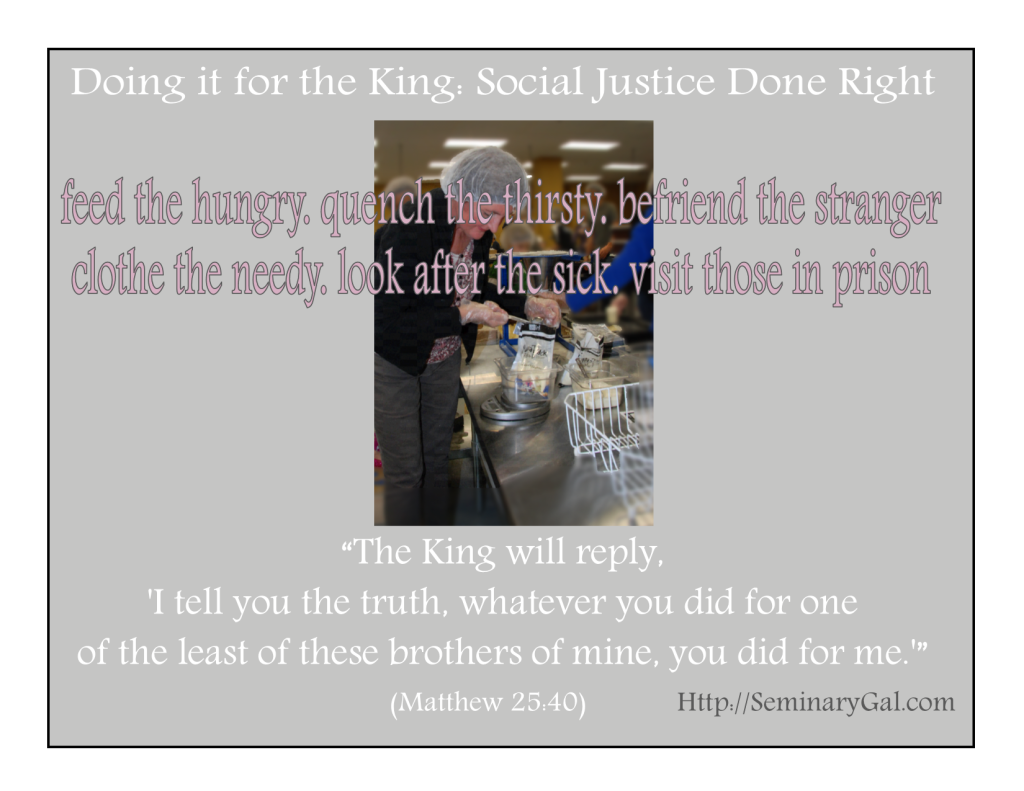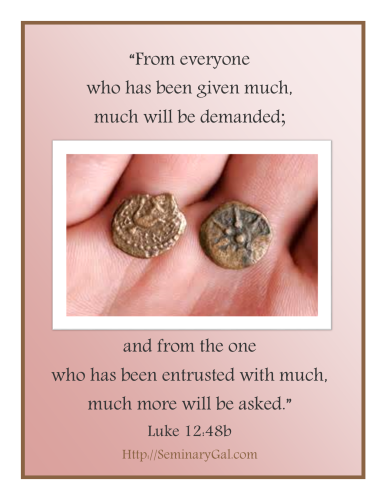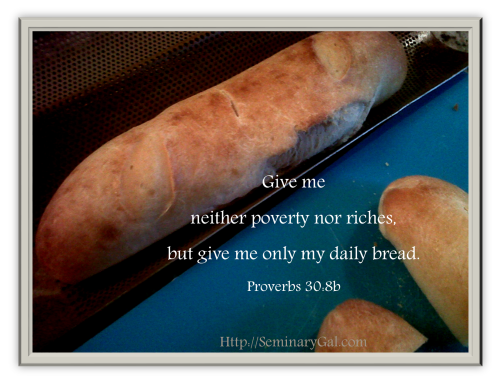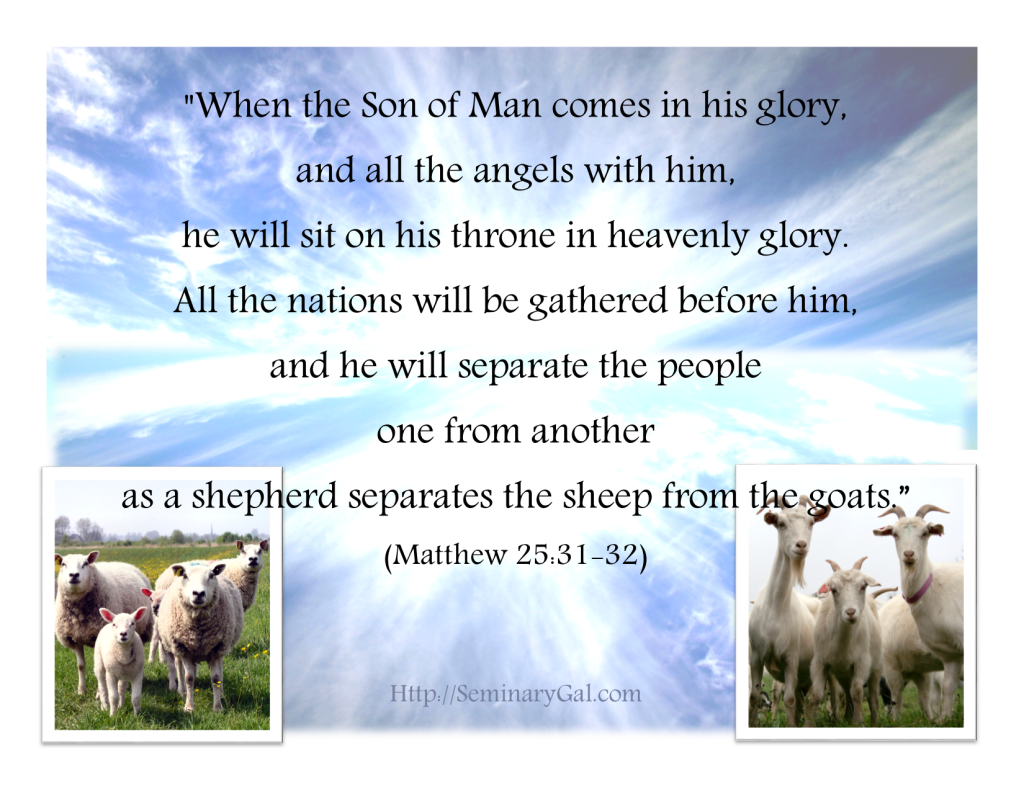Well, I had a very interesting long weekend. Not a typical weekend, but a very rewarding one. I’ve been living in the grace of God, Doing it for the King, and engaging in Social Justice Done Right.
Amid all kinds of talk about whether pastors should be extolling from the pulpit the benefits of government and justice politics with respect to the poor, God has been revealing a better way. God has been showing me the truly Christian way of Social Justice Done Right, Doing it for the King.
This past weekend was amazing. It was a long weekend, not because I had time off, but because I had an extended time of active work for the Lord.
I was doing Social Justice Done Right. As you read below, my point isn’t to brag because none of this stuff originated with me, but it does point out there are beyond ample ways that Christians can do Social Justice Right by Doing it for the King.
On Thursday, I engaged in my first opportunity to “Change the World” with my annual policy of finding whatever spare change is kicking around the house, my purse, the car, etc. and putting it in the Salvation Army buckets each and every time I find one whether anyone was ringing or not. If I didn’t have any change, a bill of some type goes in. I tell the ringers, “God bless you!” or “Jesus loves you!” and always “Merry Christmas” and “Thank you!”
Thursday night, my friend began her mission trip to Tanzania with funds many others and I donated throughout the entire year (including a check just this week) and a video on Overcoming Suffering that I made for her to use there since I couldn’t go personally. The video had been a month in the making and to see it finished and on its way to blessing people encouraged my heart. The afternoon before they left, I had prayed for my friend, the video, the people traveling, and the people to whom they were ministering. As she rode to the airport that evening and was waiting to board the plane, I encouraged a few people I knew in their music ministry at my church. It reminded me that people can be encouraged in many different ways.
Friday rolled around and I was shopping for food for the local food pantry, buying some of every item on the list they gave my husband’s employer for their collection purposes. My heart was filled with gratitude to God because it is something I can do. It reminded me of the moment that Jesus turned to the disciples and said,
“They do not need to go away. You give them something to eat.” (Matthew 14:16)
Amazing! There are things I can do to give people something to eat. I could also share joy and the gospel with people as Friday continued with more “Change the World,” and buying toys, etc. for Operation Christmas Child (a ministry of Samaritan’s Purse). The cashier and the people behind me (chuckling about the distinct groupings on the belt) were blessed by my words of gratitude for easy to read receipts and cash register subtotals as I explained I was shopping for people in need. They all smiled as I said, “God bless you!”
I came home from shopping and unloaded the items onto the table. I boxed and I sorted and I thought about each man, woman, and child who may come to the food pantry. I thought about each child receiving a shoebox of happy stuff and the smiles on their faces. I was happy, too. I prayed over the items while sorting them into their boxes. My heart swelled with joy in a way that paying a tax bill to be redistributed could never accomplish. I was helping in a very direct fashion.
On Saturday, I got a chance to encourage another woman in ministry and did my volunteer work preparing for the chapel services at the hospital on Sunday morning before encouraging two dear friends at their 40th Birthday Bash Out Hunger held at Feed My Starving Children. I was so excited about being a part of the volunteer ministry of preparing meals to feed the hungry around the world. My friends chose to have their birthday party in a place where they, too, could do Social Justice Done Right by Doing it for the King. They asked for no gifts for themselves, but made a point of mentioning the needs of this ministry to feed the poor. I wrote out a donation check that would help FMSC meet their financial needs. My friends–because of their beautiful Christian hearts–have a great many friends who joined them, all of us spending 2 glorious hours packing 106 boxes – more than 60,000 meals. The meals, a Potato-D product, are going to help with feeding the hungry in the Philippines and managing side effects of diseases like cholera that can be deadly, particularly to children and the elderly there in the wake of the super typhoon. It made me happy to do something for the Philippines.
It was while I was driving there to pack meals that it suddenly occurred to me that God was blessing me with a vision of what the Church—not the institutional church, but the organic church—can do when each person does what he or she can, Doing it for the King.
I don’t mean to imply that the institutional church cannot play a role here, too. The institutional church can minister to needs by pooling resources and doing things that one individual cannot. The institutional church can also inspire each of us to do our part in Social Justice Done Right–Doing it for the King by preaching Jesus who said,
“The King will reply, ‘I tell you the truth, whatever you did for one of the least of these brothers of mine, you did for me.'” (Matthew 25:40)
That is why we also give to our local church even though I’m a self-supported missionary 52 weeks each year at our local hospital ministering to the sick.
I offer this recitation of my long weekend not to brag or to imply that this was a typical weekend by any stretch. I share this personal vignette of my life because God designed it so beautifully and provided for it as only the King can. It was a helpful instructive that millions of people–each of whom are doing what they can for the glory of God–can make an immediate and also eternal difference. I was merely blessed by the many ways God could arrange for each of us to serve. I remain in awe of the way they converged last weekend for special effect …and also for the joy I had in helping others.
You see, there is no shortage of ways we can help.
(A while back, I wrote a post outlining 50 different ways to live the Risen Life).
Yes, the needs are great, but our King is greater. His resources are never-ending.
He’s just looking for an institutional and organic Church mobilized to take His hope, His help, His healing, His feeding the hungry, and yes, His gospel to a world in need.







 It is far too easy to let the holidays—the secular term for the holy season of Thanksgiving, Advent, and Christmas—go by with very little thought as to what this time of year would be like had LOVE not shown up.
It is far too easy to let the holidays—the secular term for the holy season of Thanksgiving, Advent, and Christmas—go by with very little thought as to what this time of year would be like had LOVE not shown up.